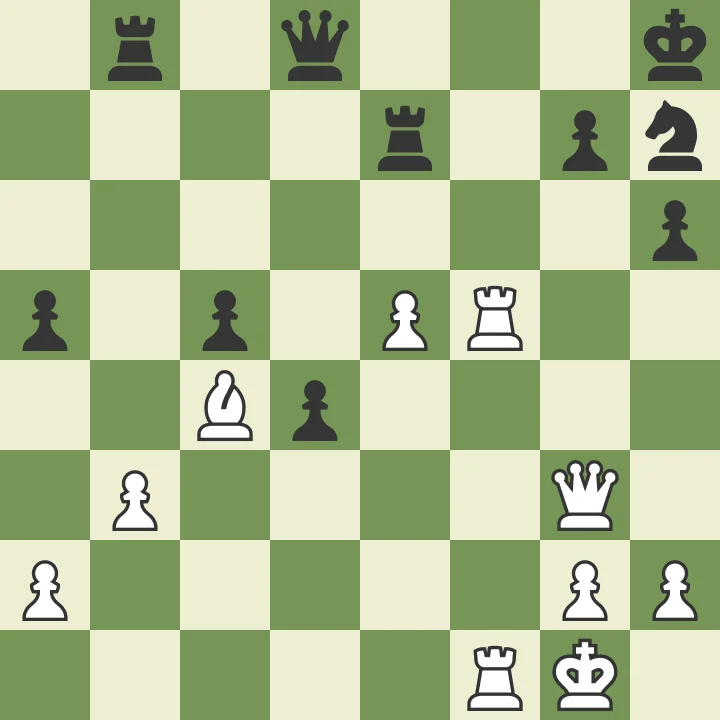Chess and Politics: Iconic Matches in History
18/02/2023 - Actualizado: 01/05/2023
Chess has been a game of strategy and competition for centuries. However, it has not been immune to the influence of politics. From the ancient empires to the modern-day political rivalries, chess has been used as a tool to showcase power, intelligence, and political ideologies. This article explores some iconic chess matches in history where politics played a crucial role in shaping the outcomes.
Chess and Politics: Iconic Matches in History
The Cold War and the Spassky-Fischer Match
The political tensions between the United States and the Soviet Union during the Cold War spilled over into many cultural realms, including chess. The 1972 match between Boris Spassky of the Soviet Union and Bobby Fischer of the United States was not just a battle for the World Chess Championship, but also a show of political power. Fischer's victory was seen as a triumph for the US in the midst of Cold War tensions.

Kasparov vs. Karpov: Soviet Politics and Chess
The rivalry between Garry Kasparov and Anatoly Karpov, two Soviet chess champions, was much more than just a game. Their matches were often seen as representative of larger political struggles within the Soviet Union. Fans and politicians alike cheered for one or the other, depending on which side of the political spectrum they fell. Kasparov ultimately emerged victorious, cementing his place in both chess and Soviet history.
The Cubans and the Chessboard
Chess has long been an important part of Cuban culture, and the government has used the game to further its political goals. In the 1960s, the Cuban government invited grandmaster Jose Raul Capablanca back to Cuba to help establish a new chess institute, which was seen as a symbol of the country's commitment to education and culture. Fidel Castro himself was known to play chess and would use the game to build alliances with other world leaders.
The Queen's Gambit and the Feminist Movement
The recent Netflix series "The Queen's Gambit" has renewed interest in chess and its role in society. The show's portrayal of a young female chess prodigy in the 1960s has sparked a discussion about the role of women in chess and the broader feminist movement. While women have made strides in the chess world, they still face gender-based discrimination and often do not receive the same opportunities as their male counterparts.
Chess and Diplomacy: The Ping Pong Diplomacy Match
In 1971, the United States and China were in the midst of a diplomatic standoff. However, a friendly game of ping pong between American and Chinese players helped to break the ice and open lines of communication between the two countries. The following year, a similar event took place in the world of chess. American grandmaster Bobby Fischer played a series of exhibition games in Yugoslavia, which helped to thaw relations between the US and the communist country.
Frequently Asked Questions
1.What is the significance of chess in relation to politics?
Chess has been a symbol of intelligence, strategy and decision-making since ancient times. In modern politics, chess has been used as a tool for diplomacy, bringing together different nations and promoting peace. Many iconic matches in history have been played between political rivals, highlighting the tensions and rivalries between nations. Chess is a game that transcends language and cultural barriers and has the power to bring people together.
2. Who are some of the most notable political figures who have played chess?
Some of the most iconic chess matches in history have been played between political figures such as Richard Nixon and Nikita Khrushchev, Boris Spassky and Bobby Fischer, and Anatoly Karpov and Garry Kasparov. These matches not only showcased their skills in the game, but also symbolized the larger political and cultural tensions between their respective nations.
3. How does chess reflect the ideologies of political leaders?
The way political leaders play chess can often reflect their ideological beliefs and governing style. For example, some leaders may be more aggressive on the board, playing with a risky and bold style, while others may be more defensive, strategically consolidating their position. The way a leader approaches chess can give insight into their decision-making process and strategic abilities.
4. How can chess be used as a tool for diplomacy and international relations?
Chess has been used as a form of cultural diplomacy, bringing together people from different nations and promoting dialogue and understanding. In addition to friendly matches, chess has also been used in negotiations and as a way to break down barriers and promote cooperation. By promoting chess as an international sport, it can serve as a means to promote understanding and communication between nations.
In conclusion, the intersection of chess and politics has been a fascinating phenomenon throughout history. Iconic matches such as Fischer vs. Spassky and Karpov vs. Kasparov have not only showcased incredible skill and strategy but also acted as symbolic representations of broader geopolitical tensions. The game of chess has served as a battleground not only for players but also for nations striving for power and influence. As we continue to witness the ways in which politics can infiltrate various aspects of our lives, it is important to acknowledge the role that a simple board game like chess has played in shaping our world.
What is your favorite match?
⭐️ If you want to know more about other articles similar to Chess and Politics: Iconic Matches in History you can visit our category Chess History. We are waiting for you inside 👍



Leave a Reply